
Learning a language is an odyssey, but if you want to travel to Poland it’s important to learn useful vocabulary for your trip as quickly as possible. How to do that? By learning the most useful Polish phrases for travel that we have compiled for you in this blog post!
You can memorize the basic Polish phrases for travelers or write them down to always have access to them if you forget anything. The more you’re going to practice during your trip, the better you’re going to remember them.
 Table of Contents
Table of Contents
- Basic Expressions
- Transport
- Shopping
- Restaurants
- Asking for and Giving Directions
- Emergencies
- Flattery Phrases
- Useful Phrases to Go through Language Problems
- Bonus: Basic Hotel Phrases
- Final Thoughts
1. Basic Expressions

Polish travel phrases by default need to include some basic expressions useful in every situation. Here are some handy greetings:
- Dzień dobry! – Good Day!
Used in formal and semi-formal situations during the day.
- Dobry wieczór! – Good evening!
Said in formal and semi-formal situations in the evening.
- Cześć! – Hi!
Used with friends and in informal situations.
Used with friends and in informal situations.
Would you like to learn even more ways of saying hello in Polish? Read our blog post “How to Say Hello in Polish and Other Polish Greetings”.
It’s equally important to learn other polite expressions before traveling such as:
- Dziękuję! / Dzięki! – Thank you! / Thanks!
Dziękuję is universal, while dzięki is reserved for informal contexts. - Przepraszam. – Excuse me, I’m sorry
You can say przepraszam when asking for something:
Ex. Przepraszam, czy może się Pan / Pani przesunąć? – Excuse me, could you move, please?
You can equally use it when apologizing:
Ex. A: Jestem na Ciebie bardzo zły! – I’m very angry with you!
B: Przepraszam. – I’m sorry. - Przykro mi. – I’m sorry.
Przykro mi is used to express sadness about something that happened.
Ex. A: Arleta na mnie nakrzyczała. – Arleta has shouted at me.
B: Przykro mi. / Przykro mi to słyszeć. – I’m sorry. / I’m sorry to hear that.
Some other basic Polish phrases for travelers are:
- Tak – yes
- Nie – no
- Lubię [object] – I like [object]
Ex. Lubię koty. – I like cats.
Lubię takes the accusative case, in other words, the basic form of words found in dictionaries. - Nie lubię [object] – I don’t like [object]
Ex. Nie lubię kotów. – I don’t like cats.
Nie lubię is followed by the genitive case. You can learn more about Polish cases in our lesson on painless Polish grammar.
- Nie mówię (dobrze) po polsku. – I don’t speak Polish (well).
- Super! / Ekstra! – Cool!
- Czy mógłby Pan / Pani zrobić mi / nam zdjęcie? – Could you take a picture of me / us, Sir / Madam?
As part of your Polish education you may also want to learn about the basic Polish sentence structure.
2. Transport
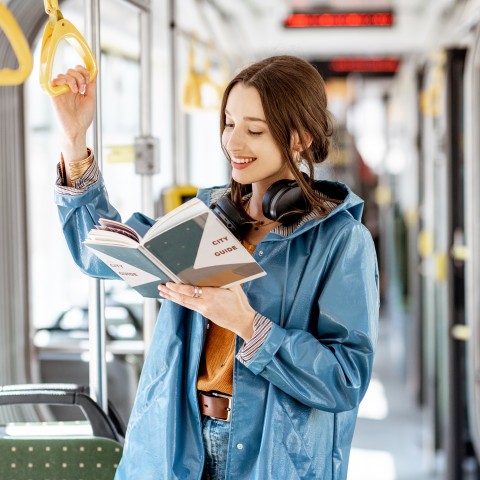
Traveling around the country you are in is a part of most adventures abroad. Let’s start with useful taxi phrases:
- Chciałbym / Chciałabym dojechać do [destination]. – I’d like to get to [destination].
The forms are for male and female speakers respectively.
Ex. Chciałbym / Chciałabym dojechać do dworca kolejowego. – I’d like to get to the train station. - Ile ten kurs będzie kosztować? – How much will this trip cost me?
- Czy mógłby się Pan / Czy mogłaby się Pani zatrzymać? – Could you stop the car, Sir / Madam?
Is getting a taxi in Poland easy? You’ll learn everything you need from a guide on taxis in Poland. If you’re on a budget traveling by bus may be a better alternative for you:
- Gdzie powinienem / powinnam wysiąść? – Where should I get off?
The first verbal form would be used by a male speaker, the second by a female speaker. - Którym autobusem mogę dojechać do [destination]? – Which bus should I take to get to [destination]?
Ex. Którym autobusem mogę dojechać do centrum? – Which bus should I take to get to the city center? - Może mi Pan / Pani powiedzieć, kiedy dojedziemy? – Could you tell me when we arrive, Sir / Madam?
Another option, particularly for long distance traveling, are trains. Here are some handy phrases:
- Ile kosztuje bilet do [destination]? – How much is a ticket to [destination]?
Ex. Ile kosztuje bilet do Krakowa? – How much is a ticket to Cracow? - Poproszę bilet do [destination]. – A ticket to [destination], please.
Ex. Poproszę bilet do Krynicy Morskiej. – A ticket to Krynica Morska, please. - Gdzie jest peron numer [number]? – Where is the platform [number]?
Ex. Gdzie jest peron numer 3? – Where is platform number 3?
Before traveling on a train you may also want to familiarize yourself with two lessons on train rides in Poland: reading the train schedule and reading your train ticket.
3. Shopping

Whether you love shopping or you like to keep it to the bare minimum, you’ll definitely have to buy some things during your trip. Below you’ll find useful expressions for when it happens:
- Ile to kosztuje? – How much does it cost?
- Ile kosztuje kilogram [object]? – How much is a kg of [object]?
Ex. Ile kosztuje kilogram ziemniaków? – How much is a kg of potatoes? - Czy jest na coś promocja? – Is there a promotion on anything?
- Co by Pan / Pani polecił / poleciła? – What would you recommend Sir / Madam?
- Czy mogę zapłacić kartą? – Can I pay by card?
- Reszty nie trzeba. – You can keep the change.
Of course, the salesperson is likely to give you some numbers when answering your questions. To understand what they’re saying, learn how to use Polish numbers for daily usage with us.
4. Restaurants
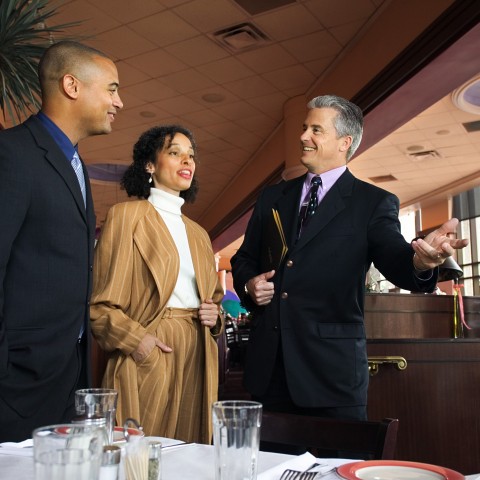
Traveling means also trying food of a given culture. Thus common Polish phrases for travelers have to include phrases useful when visiting restaurants:
- Na ile osób stolik? – A table for how many people do you need?
- Czy mogę prosić o menu / jadłospis / kartę dań? – Can I have the menu, please?
- Jestem wegetarianinem / wegetarianką. – I’m a vegetarian.
Jestem weganinem / weganką. – I’m a vegan.
In both expressions the first forms are for female speakers and the second forms for male speakers. - Mam alergię na [product]. – I’m allergic to [product].
Mam alergię na orzechy. – I’m allergic to nuts. - Wszystko było pyszne. – Everything was delicious.
- (Ja) poproszę spaghetti bolognese. – I’ll have spaghetti bolognese, please.
- Czy można prosić rachunek? – Can I have the bill, please?
To learn what dishes to expect in Poland, check out our lesson on 10 Polish foods.
5. Asking for and Giving Directions
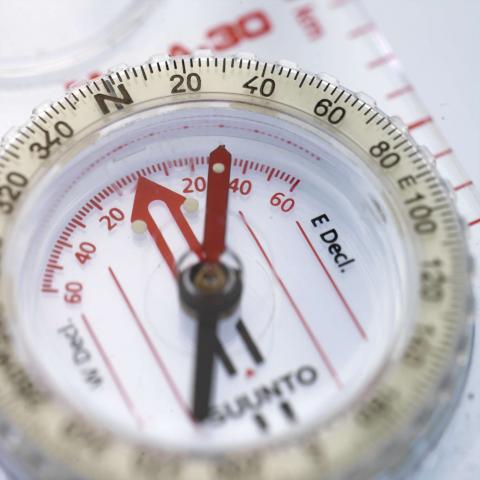
Asking for directions and being asked about them is a common tourist experience when visiting any country abroad. For these reasons it simply had to make it to our list of Polish language travel phrases:
- Gdzie jest [location]? – Where is [location]?
Ex. Gdzie jest Muzeum Narodowe? – Where is the National Museum? - Jak dojechać / dojść do [location]? – How to get to [location]?
Ex. Jak dojechać do dzielnicy Kazimierz? – How to get to the Kazimierz district?
If you use the verb dojechać, you ask about getting somewhere by private or public transport. You can’t use it if you could walk to a given place.
Jak dojść do stacji metra? – How to get to a subway station?
The verb dojść refers to getting somewhere on foot. - Proszę skręcić w lewo / w prawo. – Please turn left / right.
- Proszę iść prosto. – Please go straight.
- [Location] będzie po prawej / lewej. – [Location] will be on your right / left.
Ex. Apteka będzie po prawej / lewej. – The pharmacy will be on your right / left.
If you think you’ll be on foot a lot, our blog post on Polish directions (please link to my December article, not published yet) is a must before your trip.
6. Emergencies
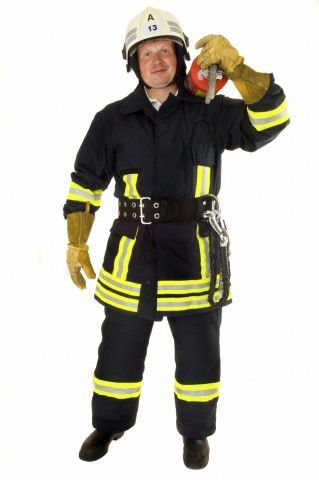
Ideally, you wouldn’t have to use any Polish travel phrases for emergencies during your trip. Unfortunately, it’s difficult to predict what may happen when traveling, which is why it’s also good to remember these Polish phrases:
- Pomocy! / Ratunku! – Help!
- Proszę zadzwonić na 112! – Please call 911!
- Proszę zadzwonić po karetkę / pogotowie! – Please call an ambulance!
- Czy jest tutaj lekarz? – Is there a doctor here?
- Zgubiłem / Zgubiłam paszport / portfel. – I’ve lost my passport / wallet.
The first form is for male speakers, the second for female speakers.
To be sure that you’re prepared for every situation, visit also our lesson on an emergency situation in Poland and the Polish police’s resource on personal safety that includes all relevant emergency numbers.
7. Flattery Phrases
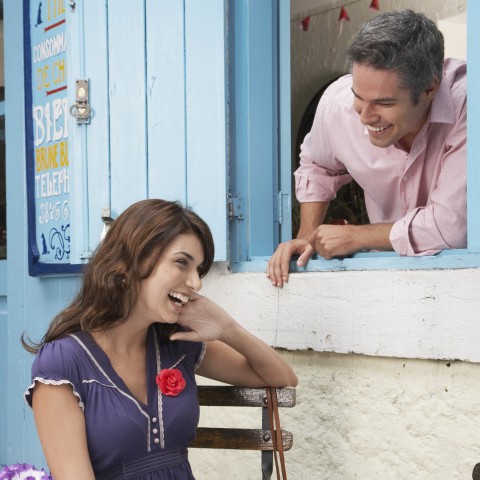
Flattery can win the hearts of other people, particularly when it’s sincere. That’s why common Polish phrases for travelers should also include some for expressing flattery:
- Lubię Polaków / Polki. – I like Polish people / Polish women.
- Lubię polskie jedzenie. – I like Polish food.
- Lubię Polskę. – I like Poland.
- Chciałbym / Chciałabym, żebyśmy się zaprzyjaźnili. – I’d like us to be friends.
The forms of the verb chcieć are for male and female speakers respectively.
Chciałabym, żebyśmy się zaprzyjaźnili / zaprzyjaźniły. – I’d like us to be friends.
Female speakers have two options. If they’re talking to a man they’d say zaprzyjaźnili. If they’re talking to a woman they’d say zaprzyjaźniły. As the rule in Polish is that even one man in a group makes it masculine in gender, the only form for male speakers is zaprzyjaźnili. - Masz konto na Facebooku / Instagramie? – Are you on Facebook / Instagram?
- Dasz mi swój numer? – Could I have your number?
These phrases go hand in hand with the top 10 compliments you always want to hear.
8. Useful Phrases to Go through Language Problems
Even if you learn all Polish language travel phrases you may encounter some language problems. To go through them you’ll need some expressions:
- Mówisz po angielsku? – Do you speak English?
The above is an informal version of this question.
Mówi Pan / Pani po angielsku? – Do you speak English, Sir / Madam?
The second version is used in formal situations. - Nie rozumiem, możesz powtórzyć? – I don’t understand, can you repeat, please? (informal)
Nie rozumiem, może Pan / Pani powtórzyć. – I don’t understand, can you repeat, please, Sir / Madam? (formal) - Jak powiedzieć [słowo] po polsku? – How do you say [word] in Polish?
Ex. Jak powiedzieć “cat” po polsku? – How do you say cat in Polish? - Możesz to napisać? – Can you write it down, please? (informal)
Może to Pan / Pani napisać? – Can you write it down, please, Sir / Madam? (formal) - Jak to przeczytać? – How do you read this?
9. Bonus: Basic Hotel Phrases
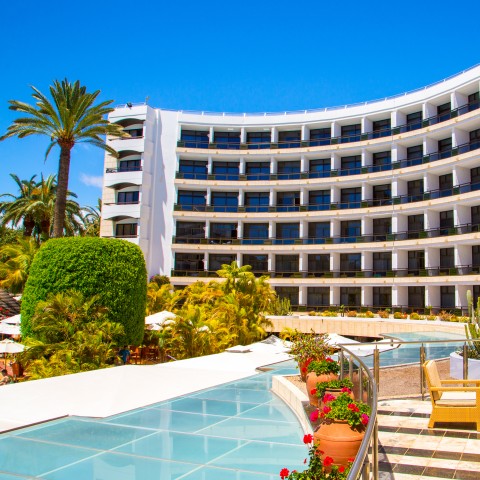
Polish hotels and guesthouses in Polish cities are likely to have staff who’ll speak English well. In smaller towns or independent accommodation arrangements it may be more of an issue. These Polish phrases for travel will assist you if you’re stuck:
- Czy mają Państwo wolne pokoje? – Do you have any free rooms?
- Chciałbym / Chciałabym zarezerwować pokój dwuosobowy. – I’d like to book a double room.
The first form is masculine and the second for female speakers. - Czy w pokoju są ręczniki? – Are there towels in the room?
- Czy pokój ma widok na morze? – Is it a room with a sea view?
- Ile kosztuje pokój dla jednej osoby? – How much is a single room?
Have you used any of these Polish language travel phrases yet? Let us know in the comments’ section.
10. Final Thoughts
Thanks to this blog post you’ve learnt basic Polish phrases for travelers. They’ll be useful in many everyday situations you could encounter during your travels. Don’t be shy and use Polish as much as you can when in Poland as this is the best language learning opportunity you could imagine.
Polish travel phrases aren’t everything. Common Polish phrases for travelers are useful but they won’t allow you to have advanced conversations on any topic. To achieve that level you need a platform to structure your learning for you. PolishPod101 is just the right place for you. Try it today!










